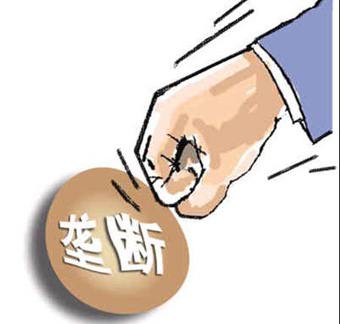Advertising Screen,Digital Advertising Display Screens,Digital Advertising Screen,Digital Advertising Display Guangdong Elieken Electronic Technology Co.,Ltd. , https://www.elieken.com The National Development and Reform Commission announced that the case of conspiracy to manipulate the price of LCD panels to penalize South Korea’s Samsung, LG, and China’s six companies in Taiwan has attracted widespread attention at home and abroad. This is the first time China has imposed a price monopoly punishment on foreign companies, marking the country’s anti-monopoly domain. The implementation of the jurisdictional system has taken a big step.
The National Development and Reform Commission announced that the case of conspiracy to manipulate the price of LCD panels to penalize South Korea’s Samsung, LG, and China’s six companies in Taiwan has attracted widespread attention at home and abroad. This is the first time China has imposed a price monopoly punishment on foreign companies, marking the country’s anti-monopoly domain. The implementation of the jurisdictional system has taken a big step.
The extraterritorial jurisdiction of antitrust law is an international practice. The major countries in the world that have enacted anti-monopoly laws have basically implemented an extraterritorial jurisdiction system. Many countries and regions have incorporated anti-monopoly laws between M&A operations between “genuine†foreign-funded enterprises with headquarters abroad. Monopoly review ranks. Moreover, the universal jurisdiction of antimonopoly laws in various countries is the principle of effectiveness, that is, the behavior of foreign companies has a major impact on the domestic market. Article 2 of the "Anti-Monopoly Law" of China clearly stipulates that: "... the monopolistic conducts outside the People's Republic of China, which have the effect of eliminating or restricting competition in the domestic market, shall apply this Law." In other words, the extraterritorial jurisdiction system of China's anti-monopoly law is also pursued. The effect principle, though not stated explicitly.
In implementing the extraterritorial jurisdiction system of China’s anti-monopoly law, the area of ​​operator concentration in charge of the Ministry of Commerce has taken the lead. Since 2008, conditions attached to InBev Group's acquisition of AB have so far, the Ministry of Commerce approved more than 10 cases of anti-monopoly review of the jurisdiction outside the jurisdiction of the operator, including Google’s acquisition of Motorola’s mobile case, Seagate Technology’s acquisition of Samsung Electronics. Co., Ltd. hard drive business case, Pfizer Inc. acquired Wyeth company case. The NDRC imposed penalties on companies in South Korea and Taiwan for price monopoly, marking another major step in the implementation of anti-monopoly law in mainland China. The reason for emphasizing this point again is that there are still many countries, regions, and governments and the public lacking the concept of complying with China's anti-monopoly law and other economic laws and regulations. Due to the vast Chinese market, it is already the second largest in the world. The economy and the second-largest importing country, any company that has reached a sufficient scale and has a global market ambition can not afford to lose the Chinese market. China is fully capable of forcing foreign companies that intend to ignore China’s economic laws and regulations to yield.
In the LCD panel price manipulation case, companies involved in violations of the law have been ordered to return, confiscated and fined a total of 353 million yuan, which is China's largest ever penalized for price violations. However, compared with the United States’ $1.215 billion, EU 648 million euros, and South Korea’s 194 billion won fines, the amount of this fine issued by China was significantly lower, leaving many Chinese public and observers unsatisfied. Although there must be some mistakes, the goal of China’s anti-monopoly law is not to “finish†one or more companies or an industry, but to establish a normal market order; Can be followed, then we should not advocate the implementation of punishment beyond the law. Even if the practical results prove that the punishment is too low to achieve the desired results, it can only be implemented in accordance with the new regulations after the statutory procedures have been revised. Moreover, the astronomical fines in anti-monopoly cases in the United States and Europe are often based on the global sales of the companies involved in the violations, and thus in fact constitute a plunder to other countries. This unfair practice is undesirable for our country. It is destined to receive increasingly strong opposition. As for claiming to compensate consumers for this case, although it seems to be “eliminating gasâ€, it is not economically viable and has no realistic feasibility. It has no other effect than harming the Chinese business environment.